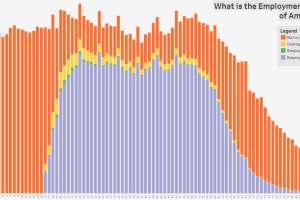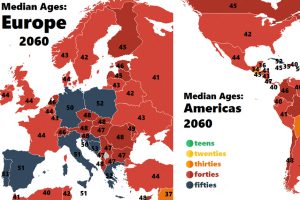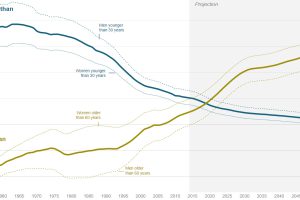
Cities are using more food, energy, and materials than ever before. See the technologies being used by the world’s smartest cities to combat these issues. Read more

The world’s 10 most populous countries may all have many millions of people, but their future growth prospects are very different. Read more

These three charts show the age distribution of the U.S. population, further broken down by employment status, education, and marital status. Read more

How fast are countries in Europe and the Americas aging? These colorful animations show how the median age is projected to change up until the year 2060. Read more

Watch the generations fly by in this animation showing the changing age composition of the U.S. population. Read more

By 2019, the country will have a higher 60+ year old population than its 30 and under crowd. This series of charts shows the demographic outlook for Germany. Read more

How have state populations changed over a century? This bump chart shows the population rank of every state in the United States over 1917-2017. Read more

This animation captures 200,000 years of human population growth – see everything from the invention of farming to the impact of the Black Death. Read more

See how the list of the world’s five largest cities has changed between 3000 BC until today, and how it’s expected to shift as we close out the 21st century. Read more

The average age for adults to move out in the top seven countries—all from the same region—is either at or above 30. Read more

